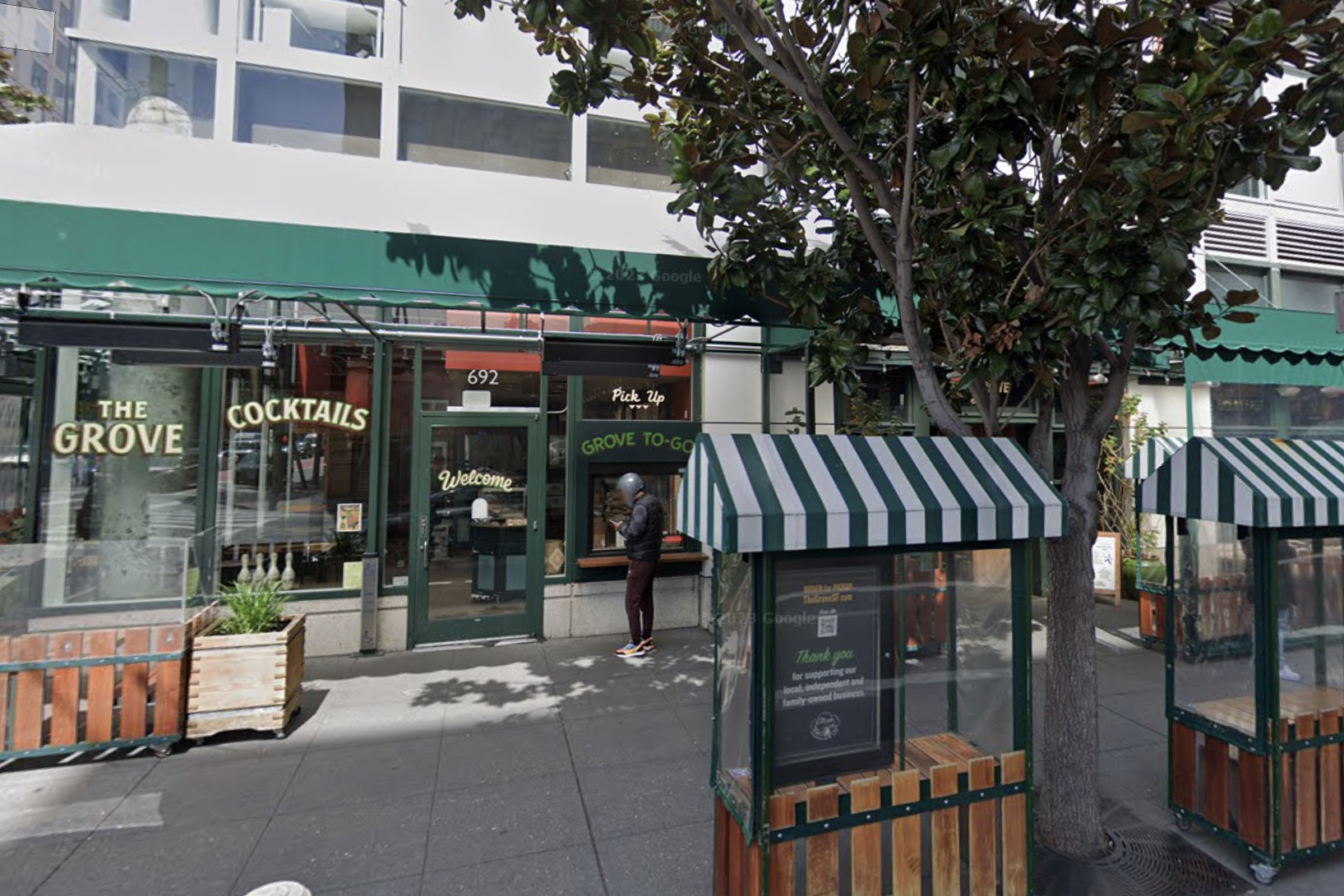San Francisco APEC turned out to be a gut punch to a commercial area that has been struggling to recover since the pandemic.
Four businesses The Standard spoke to that are based in and around the APEC security zone said contrary to the summit’s billing as a shot in the arm for business, the results were the exact opposite, as food rotted and seats remained empty for an entire week.
Business owners blamed the lack of customers on messaging urging people not to visit the area unless they had to, the physical barriers around the Moscone Center security perimeter and the protests.
At the Grove, a restaurant on 690 Mission St., revenue was down 40% during the APEC conference, with 1,300 fewer customers than a normal week, according to David Cohen, CEO of the Grove’s parent company.
‘It Destroyed Our Financials’
“We stayed open to be a part of this event to showcase the city, and we saw a huge sales drop,” Cohen said. “It destroyed our financials.”
Cohen said the Grove is normally packed all day during large conferences at the Moscone Center, as his restaurant is visible as soon as you leave the venue, and expected APEC would be similar. But Cohen said the security fencing made it difficult for customers to access his restaurant. Cohen also blamed frequent protests, which he says deterred customers.
“It was way below expectations,” Cohen said. “Instead of seeing a boost to business, we saw a drop.”
Sales at the Barbary Coast, a cannabis dispensary at 952 Mission St., were down by between 50% and 60% during APEC, according to co-owner Nate Haas.
“It was not good,” Haas said.
While his dispensary was outside the security measures, Haas said surrounding traffic issues drove people away from his location to other competitors on the west side, far from his SoMa shop.
“Are you going to go there, or are you just going to go to a dispensary in the Avenues?” Haas said, referring to the west side of the city.
Sana’a Coffee, a coffee shop just outside the secure zone at 199 New Montgomery St., also suffered.
“Nobody could park,” manager Abdul Saeed said. “There was low foot traffic.”
At Cafe du Soleil at 345 Third St., which was inside the red security zone, business suffered initially but picked up by Thursday and Friday.
“A lot of the security people really supported us,” owner Michael Beigi said. “They were coming in groups of five [or] 10.”
All in all, Beigi said revenue from in-person dining was only down $600 for the whole week, but his business lost $3,000 in catering revenue because the security measures meant it was impractical to drive a car with food out of his shop around the city. Delivery vehicles were permitted inside the perimeter, but businesses didn’t seem to get the message.
“How could you do delivery?” Beigi said. “All the streets were barricaded.”
But even with the loss, Beigi said he is not too upset, chalking it up to the risk inherent in running a business and fairly minor compared to the financial strain restaurants faced during Covid.
“Covid was 16 months,” Beigi said. “One week is nothing.”
The Mayor’s Office said it anticipated APEC would cause disruptions during the week despite extensive planning and, in response, the city launched a multiagency door-to-door outreach effort in the months leading up to the summit. The Mayor’s Office added that it believes APEC will bring long-lasting economic impacts to the area that will boost Downtown’s post-Covid recovery but did not provide further details.
“Now that APEC has officially concluded and all security elements have been removed, we are looking forward to a strong holiday season for our businesses, residents and visitors,” the Mayor’s Office said in an emailed statement.
The San Francisco Office of Economic and Workforce Development said they and city partners are actively conversing with businesses and the community to understand their impacts and concerns.
“While APEC has been a boom to hotel occupancy and other sectors, the disruptions of security zones, traveling dignitaries, and protests have, unfortunately, disrupted visitation to our small businesses during the days of APEC,” OEWD said in a statement. “However, city efforts to support our small businesses will continue even after APEC; we’ll continue to promote support for local businesses throughout the holidays and beyond. And we hope to continue our work with our small business sector to understand and apply the lessons learned from APEC to create a roadmap for success for area businesses for future events of this magnitude.”
